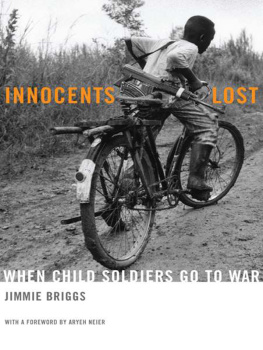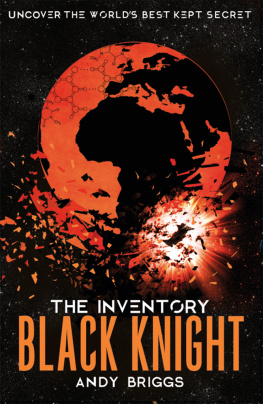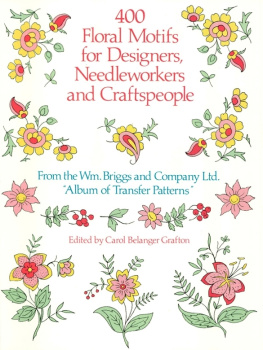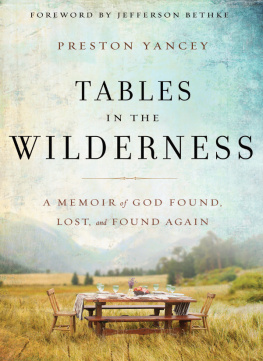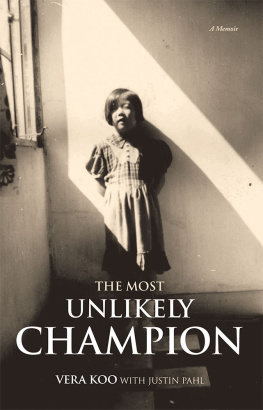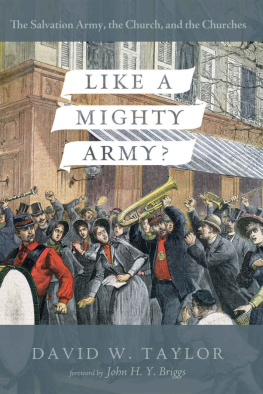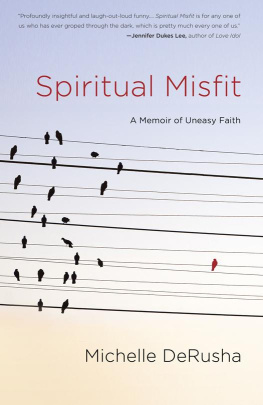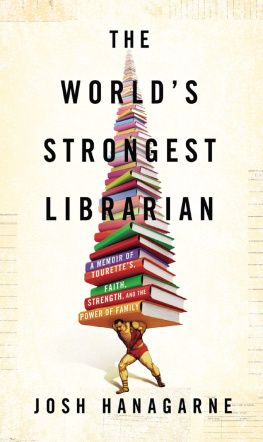A NOTE ON THE AUTHOR
Carolyn S. Briggs received her B.A. and M.F.A. from the University of Arkansas. Her short story Incarnate won the Heartland Short Fiction Prize and was published in New Letters. She currently teaches composition and creative writing in Des Moines, Iowa, where she lives with her husband David.
ACKNOWLEDGMENTS
I owe a great debt to my teachers. Few of them realized how closely I was listening or how fervently I wanted to understand the new world they represented. They were my guides I trained my eyes on them and followed them out. Thank you, Dr. Hodges, Dr. Jones, Dr. Vervack, Dr. Bennett, Dr. Burris, Dr. Candido, Dr. Guinn, Dr. Montgomery, and Dr. Van Sycoc. Thank you, dear John DuVal. I worshipped and adored my writing teachers: Skip Hays, Bill Harrison, Michael Heffernan, Joanne Meschery, PattiAnn Rogers, Jim Whitehead. Each one gave me renewed vision and courage to be a writer of integrity. I was an ungainly child in graduate school; at times my metamorphosis must have been as painful to others as it was to me. My friend and colleague David Koen was unceasingly patient as I struggled through years of sticky shell.
My children have loved me on both sides of the cross. I am grateful for their constant love and support, their sense of humor and irony, their sharp cynicism that sustains all of us these days. My mother and father have always been and remain near the center of my universe I thank them for allowing me to give my version of the Allendale years. If grace is defined as unmerited favor, my sister has showered me with such grace. She encouraged me daily in the writing of this book.
I have depended upon Esmond Harmsworths guidance and editorial advice from the most infant stages of my proposal. He has been everything an agent should be: enthusiastic, steady, available. Also, thanks to Lane Zachary for her input and help. My editor, Colin Dickerman, proved invaluable to me. His questions resulted in content I never anticipated writing. I am truly grateful for the way he shaped my book. Andrea Lynch read this manuscript carefully and commented insightfully.
Finally, thank you to my love, my husband. We were married on the millennium, nearly as long as I had waited for him, Mon coeur entier, forever.
Carolyn S. Briggs
Des Moines, Iowa
August 2001
A NOTE ON THE TYPE
The text of this book is set in Linotype Sabon, named after the type founder, Jacques Sabon. It was designed by Jan Tschichold and jointly developed by Linotype, Monotype and Stempel, in response to a need for a typeface to be available in identical form for mechanical hot metal composition and hand composition using foundry type.
Tschichold based his design for Sabon roman on a fount engraved by Garamond, and Sabon italic on a fount by Granjon. It was first used in 1966 and has proved an enduring modern classic.
LOST
When I was in second grade, our family was nearly wiped out in a single night. We rented a farmhouse near the town dump. It was tall and white, a homestead as plain and windswept as the next on the Iowa landscape. The winter I was seven, Daddy stacked bales of hay around the foundation and tacked Visqueen over the windows. Even then, we were cold. We wore heavy sweaters and shoes and socks whenever we were up. Sometimes I tried to wear mittens, but Momma made me take them off. Youre not that cold, she said.
My little sister and I rode the school bus each day. We had learned to cover our mouths as we waited for the bus to come to keep the spit from freezing on our lips, cracking the corners of our mouths. We wore boots with artificial fur around the top and coats two sizes too big so that we could wear them another year. We werent regular country kids because we didnt have a farm. We lived by the dump, and something always was smoldering on the hill behind our house. Old mattresses and recliners, pot scrapings and potato peels, bones gnawed clean. All of this burned and filled the valley with a lingering stench. When the bus pulled off the main highway and drove toward our house, the other kids teased us by plugging their noses. Ooh, theyd squeal. It smeeells! It smells like someone farted! It smells like some dead guy farted! My sister and I laughed too and plugged our noses to prove that we also thought it was stinky. But it was clear that we werent supposed to join in. The yellow Allendale School District bus plowed through the rancid haze; the door split open and we were home. As we pulled off our coats, I only had one question.
How are the pigs doing, Momma?
My mother had agreed to try her hand at rescuing the runts of the litter from certain death. For every piglet she saved, our farmer landlord would take ten bucks off the rent. Momma was always fussing with these sucklings, the ones the sow refused to feed. I remember scrutinizing the piglets, examining them for blemishes and shortcomings, wondering what it was about them that their mother had shunned.
My mother nursed them with milk from baby bottles and kept them in the oven in a newspaper-lined box. Gentle heat wafted through the linoleum kitchen from the open oven door. I loved peeking in at the piglets and seeing their hairless little bodies squirm in comfort and warmth. I gave them unimaginative names like Pinky and Curly, and I wrote stories about our tiny pigs in my Big Chief tablet, in which they grew up to be wonderfully clever pigs, talking ones, and always very clean.
But most of the time the pigs didnt make it. When they died, Daddy loaded the box in the car and drove down the gravel road to the bridge over the Raccoon River. He unceremoniously dumped the little pigs over the railing. They made big splashing sounds and then disappeared for a minute. When the piglets made their way back to the surface, I always felt a strange elation it was the nearest thing Id seen to resurrection. Id scream, Theres Pinky! I see him! Momma didnt let us watch for long. Id be upset for the next few days, and then wed get a new Pinky, a new Wilbur, and Id start all over.
It was late January and I sat at the kitchen table with my tablet in front of me, but all I could do was lay my head on my arm and watch the pigs out of the corner of my eye. Momma had a bad headache and wore her pink robe on top of her clothes. She was a hardworking woman; our house was always spotless, the dishes done and the beds made. My mother never let down and never stopped working, but all day long she had moved very slowly, softly brushing my forehead with the back of her hand whenever she passed me. We were all sick with the flu; my brother and sister lay on opposite ends of the couch, alternately watching a soap opera and napping. They were only five and three and whined for Mothers attention. I was old enough to know she was sick, too. I watched her and I watched the pigs, but I didnt ask for anything. When Momma brought me graham crackers and milk, I slid them far away; just the thought of the cloying sweetness of a cracker packed in my molars and gums made me dizzy with nausea.
We made it through the day and rallied only when Daddy came home from work bringing a pot of soup Grandma had sent. Momma served bowls of the greasy chicken broth with the lumpy, formless noodles Grandma made. We laughed about Grandmas noodles. Bless her, Momma said. She doesnt know how to make soup, but she has a good heart. We didnt eat much. Momma cleaned the kitchen and washed the dishes, and Daddy said he was going to lie down and try to get rid of his headache.
Thats when the story could have ended. We all fell asleep in that early evening, the Iowa sky graying into darkness while our little pigs died unattended. When my fathers alarm clock sounded the next morning, we did not move. Not one of us. My parents were in their double bed, their bodies twined into each other, my fathers work uniform buried in the folds of my mothers pink chenille robe. My sister held our baby brother on the couch, both motionless. I had made my way to my bed upstairs, the coldest part of the house. I was still wearing my shoes.



